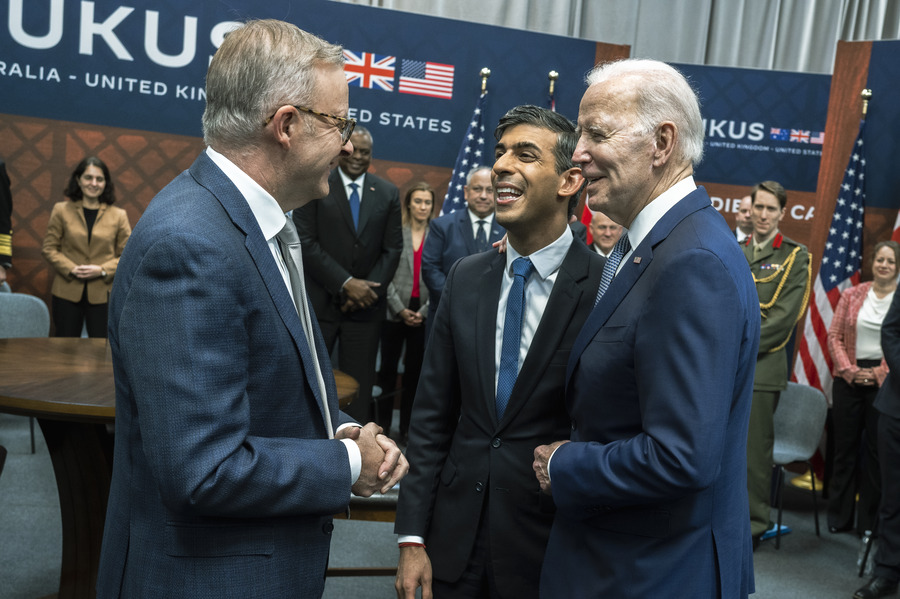Thoughts on Legal Issues Raised by the Baraawe Raid and the Tripoli Rendition
Yesterday's Special Operations Forces raid on an al-Shabaab facility in Baraawe, Somalia, and the near-simultaneous capture-and-rendition of an al Qaeda figure in Tripoli, raise a number of interesting legal questions. It's hard to say too much about them given the limited amount of information available at this stage, so my aim here is simply to flag a few key questions and offer some pre
Published by The Lawfare Institute
in Cooperation With

Yesterday's Special Operations Forces raid on an al-Shabaab facility in Baraawe, Somalia, and the near-simultaneous capture-and-rendition of an al Qaeda figure in Tripoli, raise a number of interesting legal questions. It's hard to say too much about them given the limited amount of information available at this stage, so my aim here is simply to flag a few key questions and offer some preliminary thoughts about them.
What was the domestic law justification for the Baraawe Raid?
Option 1: The 2001 AUMF
One possibility is that the raid was understood by the Obama administration to fall within the scope of the 2001 AUMF, either on the theory that the particular individual whom they hoped to capture is himself not just part of al-Shabaab but also part of al Qaeda or on the theory that al Shabaab at this point has at last become not just an associated force of al Qaeda but an associated force of al Qaeda engaged in hostilities against the United States. So far as I know the administration has not yet taken the latter position (though the public would by no means necessarily know it if it had, so we can hardly rule it out). And of course the former is certainly possible, depending on the particular facts.
Option 2: Article II Authority
All that said, leaked statements from US officials suggest that this raid was explicitly responding both to the Westgate Mall atrocity and the prospect that this particular al-Shabaab leader was involved in activities that portended future attacks outside Somalia itself (though I've yet to see a claim that there is intelligence suggesting a new emphasis on attacking American targets in particular; the tenor of the leaks suggest further Westgate Mall-style attacks in the region). This suggests a non-AUMF basis for the attack: the use of limited force under color of Article II authority in order to prevent regional destabilization and perhaps also in the name of collective defense of various governments in the area. Note how such an argument would run with the grain of Obama administration theories as to the propriety of its 2011 intervention in Libya and its near-intervention this fall in Syria. Or, as a close variant on that Article II theory, the legal rationale at work here may be that the nature of the raid itself--which plainly was designed to at least appear to have placed the priority on capture and to have allowed for the use of deadly force only as required to execute the capture operation rather than as a first resort--places this action below the level of violence implicating separation-of-powers concerns in the first place. Again, that would run very much with the grain of the Libya/Syria examples.
Did the Baraawe raid depend on the relevance of an armed-conflict model?
Definitely not. As I argue in my new essay Postwar, much or even most of current counterterrorism policy does not require the United States to continue to assert the relevance of an armed-conflict model. Certainly the Baraawe raid, as currently being described in the media, does not depend on that model. But note that this did not mean lethal force was off the table. It is clear that SOF personnel killed a number of individuals during the raid, even if not the target himself.
What about the near-simultaneous rendition of an al Qaeda-member captured by US personnel in Tripoli?
At first blush there appears to be little difficulty identifying a domestic-law justification for the capture of Abu Anas al-Liby in Tripoli, which then resulted in the removal of al-Liby to what surely amounts to a period of temporary custody on board a US Navy vessel somewhere in the Med. The AUMF seems plainly relevant. That said, don't expect al-Liby to stay in military custody for more than a few weeks. This situation will unfold just like the capture of Ahmed Warsame a few years ago, meaning that after a period of no more than, say, 6-8 weeks, al-Liby almost certainly will be flown to the United States to face a criminal trial. For reasons I expand upon in Postwar, a host of factors ensure this result. Not that it's a bad result, assuming prosecutors have the evidence to convict him for his involvement in the East African embassy bombings, and assuming that we give the HIG (or other specialist interrogation personnel) an adequate chance to gather information from him during this interim period. To me, the most interesting larger question this episode will raise is whether the inclusion of an interim period of military detention en route to civilian prosecution undermines the claim I advance in Postwar, to the effect that the armed-conflict model no longer really matters to our CT operations. The shorter the period of detention, it seems to me, the less this episode will challenge that thesis.
Robert (Bobby) Chesney is the Dean of the University of Texas School of Law, where he also holds the James A. Baker III Chair in the Rule of Law and World Affairs at UT. He is known internationally for his scholarship relating both to cybersecurity and national security. He is a co-founder of Lawfare, the nation’s leading online source for analysis of national security legal issues, and he co-hosts the popular show The National Security Law Podcast.





